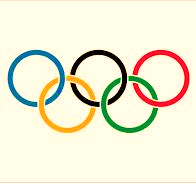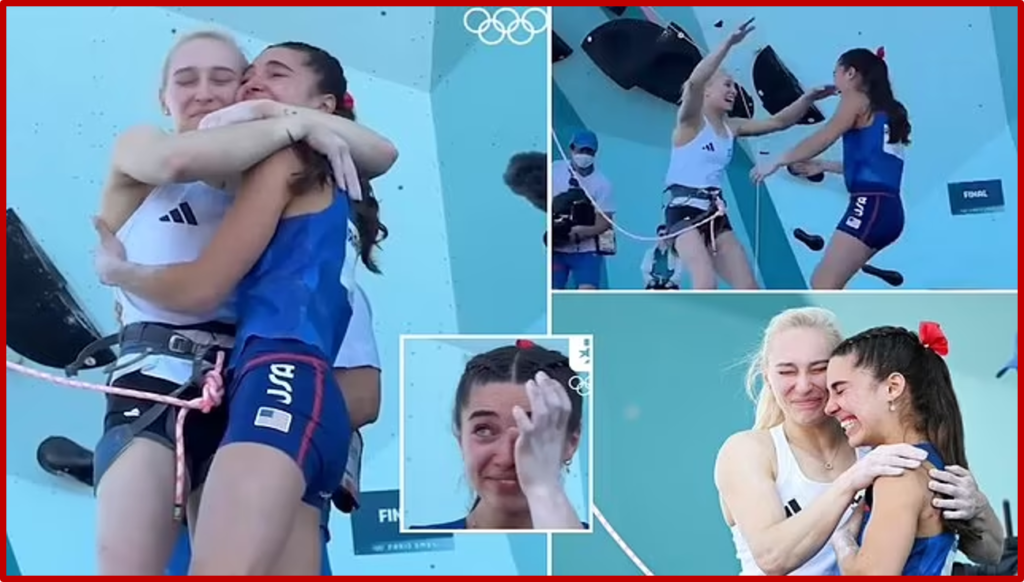WE ALL WANT GOOD NEWS! WE ALL NEED GOOD NEWS!
Kindly READ SOME OF THEM in the post below:
Mount Olympus, mountain peak, the highest (9,570 feet [2,917 metres]) in Greece. It is part of the Olympus massif near the Gulf of Thérmai (Modern Greek: Thermaïkós) of the Aegean Sea and lies astride the border between Macedonia (Makedonía) and Thessaly (Thessalía). It is also designated as Upper Olympus (Áno Ólympos), as opposed to Lower Olympus (Káto Ólympos), an adjacent peak on the south rising to 5,210 feet (1,588 metres).
Mount Olympus is snowcapped and often has cloud cover. According to Homer’s Odyssey, however, the peak never has storms and it basks in cloudless aithēr (Greek: “pure upper air”; thus “ether”). Later writers elaborated upon this description, which may have originated from the observation that the peak is often visible above a belt of relatively low clouds. In Greek mythology, Mount Olympus was regarded as the abode of the gods and the site of the throne of Zeus. The name Olympus was used for several other mountains as well as hills, villages, and mythical personages in Greece and Asia Minor.
WHO may conquered the Mountain of the Gods! The climb is not for everyone, but “somehow special people” make it to the top.
The challenge of Mount Olympus is has been around since ancient times. It invited and challenged mountaineers to his steep ridges.
“The beginning of the Olympic Games dates back to ancient Greece 1000 years BC. The games had a cultic significance at the time in the holy place of Olympia and began as religious gatherings. At first there was only one match, but at its height the games lasted five days and included sports such as wrestling and chariot racing. Competitors and spectators could only be men, they competed naked. Women were not allowed to participate either as competitors or spectators, they had their own competition in honor of the goddess Hera.The Athenians educated young men in gymnasiums in two areas: gymnastics and agonistics (agon-match).” (1)
Olympic games
In ancient competitions, victory was much more important than Pierre de Coubertin’s Olympic philosophy suggests. It is only by chance that some of the achievements of that time have been preserved, as they could neither be measured nor tracked. The winners had many benefits: they received a wreath of olive branches, a statue or a vase, a tripod made of precious metal, they were excused from paying taxes, they got free food, they had a seat of honor in the theater, they were sung odes and poets wrote poems about them. The victory was of utmost importance, and the defeat was, so to speak, a shame for the entire city-state.
The lists of winners are only known to us from 776 BC, but ancient scholars have proven that the games go back as far as the second millennium. The first winner recorded in the old archives was the Greek runner Koreba. The competitions, which eventually lasted five days, included: running, duels, pentathlon, equestrian and driving races, as well as the selection of the best trumpeter and the best herald. The most important competition was pentathlon-pentathlon (running, long jump, discus throw, javelin throw and wrestling). Medals were awarded to the winners only on the last day of the games. The games were held every four years, always in August.
King of Elis Ifidos was important in the history of the Olympic Games as their organizer. The ancient Greek sports games were an important economic, cultural and political event, especially the Olympic Games, which were held at the end of the 7th century. BC n. no. became an all-Greek event. The stadium could host up to 40,000 visitors.
The games were held for more than 1,200 years, in 391 AD. however, the Roman emperor Theodosius I officially banned all pagan worship, including the Olympic Games, which then meant the end of the Olympic movement. In the Middle Ages, sports participation throughout the world only slowly gained importance, and it was only in the 19th century that sports became established again. New sports began to develop, such as golf, football, tennis, and exercise became more and more popular as a mass sport.
The Olympics of the modern era
Pierre de Coubertin, a descendant of an old French family born in Paris (in 1863), has the greatest importance for the development of Olympism. Already at a young age, he was enthusiastic about the ancient Olympic Games. His idea was to revive the “noble and chivalrous” way of training the body in the form of an amateur sport, which should be a reward in itself. The ideal values of sports meetings should in no way be undermined by material rewards for athletes, nor by thinking about profit or sporting bargains. Coubertin tirelessly searched for a suitable forum through which he could popularize his ideas about the restoration of the Olympic Games. At the congress in 1894 at the Sorbonne, they unanimously adopted a decision to revive the Olympic Games in 1896, which would be held in Athens, and then every four years in the capital of another country. They also established the International Olympic Committee (IOC), which was the basis for the establishment of national Olympic committees. They also made some other decisions that are still valid today: the games will be held every 4 years and in leap years, the program will consist of modern sports, cities (not countries) will be able to compete for the organization of the games, they decided on the flag, etc.
At the first Olympics in Athens in 1896, athletes competed in nine disciplines, and in Rio 2016 there are already forty-two disciplines. The first Winter Olympic Games were held in Chamonix in 1924, where six sports were on the program, and at the Sochi 2014 Olympic Games there were already fifteen.
COMPETITIVENESS IS ALSO SYNONYMOUS FOR SPORT
Competitiveness has different subtitles.
Competing are people who stimulate themselves so much that they bring out their best performance. But there are also people competing who have a huge need for external validation. This is energy that they are unable to provide for themselves. Therefore, they will do practically anything to win and the related external validation.
Competition is normal in sports competitions.
Unfortunately, it is becoming more and more present in other areas of life. Ever since childhood, childrens are always competing with others for something. Life today is one big competitive playground.
But why do we have to compete with others in everyday life?
Matches in everyday life have their own backgrounds, they grow and develop out of necessity. “Competitors” need their “victories” / losers in everyday life because they need other people’s attention, external validation, praise. It is therefore a “way of constantly supplying other people’s energy” so that the contestant’s ego can feed on it and survive. If such supply chains of energy are interrupted, our competitor starves or his ego starves. And such a hungry competitor can become aggressive, cunning, lying, dishonest,…, all with the goal of winning his matches, so that he is the winner and the others are the loosers.
Nowadays, in both simple and complex disputes, we use win-win strategies in which everyone wins. Those who selfishly only want their own victory will not want to use such strategies.
It is an illusion that the Olympic Games will host only those athletes who shine not only with their competitive achievements, but also as people. Humanity, humanity, kindness, sincerity, authenticity – these are qualities that are supported by the energies of a person’s pure soul. In matches, however, he often wins at any cost, even with figs in his pockets, with rudeness, with intrigues, with wickedness.
But we also have exceptions, bright exceptions that set an example for everyone else. I have pointed out one such bright exception, and this in the words of other people, because many admire her. With a reason!
My homeland, the Republic of Slovenia, sent its best athletes to this year’s Olympic Games in Paris.
Among them is also my town-women from Slovenj Gradec, Janja Garnbret, climber and winner of the gold medal at the previous Olympic Games.
VERY SPECIAL, REAL STORY
THE GOLDEN HEART BRIDGES AND MOUNT OF THE GODS, OLYMP.
The Mountain of the Gods does not allow everyone to its peaks.
This time, someone’s heart must have put on this mountain’s top the Divine Crown. We don’t hear something like this very often, especially since it happened regarding the Olympics (2024).
This time, someone’s heart must have put on this mountain the Divine Crown.
The heart to heart of sports rivals created a very special, heartfelt bridge.
We don’t hear something like this very often, especially since it happened regarding the Olympics.
This wonderful story below started already during Janja’s preparations for Olympic Games, Janez Usenik wrote it perfectly and publish on Facebook and I am sharing it with you. It is worth reading:
“I don’t blame you at all if you can’t read this, it’s just a long load of one couch potato fan, but…
Shortly after the Olympic Games in Tokyo, I, a man who did not dare to climb trees even in his youth and who probably could not even get to the top of a climbing wall with the help of a ladder, really became a fan of sport climbing.
First of all, of course, I was excited when I realized what an exceptional athlete Slovenia has. But that’s enough to make me pay attention, not a fan.
I became a fan when I saw after Janja’s victory in Tokyo how sincerely Miho Nonaka and Akiya Noguchi rushed to hug Janja after she defeated them. In fact, he and Nonaka were friends who trained together at the time. This gave me the feeling that climbing is a new Olympic sport, but it cultivates the old Olympic values.
Today I experienced it again. At the moment when Janja climbed to the hold that ensured her victory, the camera showed Brooke Rabout: the American, who at that moment “lost” the gold, clapped and shouted “Janja!!!”…
If the roles were reversed, Janja would certainly do the same. This year, Brooke visited Slovenia and trained together with Janja – the two competitors helped each other to be as good as possible, and coach Brooke Raboutou said at the time how much new self-confidence this gave the American woman. So much so that today she decently challenged Janja on the wall, but then jumped into her arms overjoyed…
Then, in recent years, I have been watching videos of Janja, when she was, for example, meeting with amateur climbers at organized events. Everyone came to see their “goddess” and they met a “colleague” who enthusiastically climbed with them. I saw a video where she presented climbing so exciting that you can’t stop smiling. And watched how she stood up for climbing without unhealthy weight loss practices…
“How much Janja gave to this sport shows not only what kind of competitor she is, but what kind of person she is,” said the Eurosport commentator today.
Janja passed the champion test with distinction. As her coach tearfully said, no one can imagine the pressure under which she climbed as the favorite. But at the same time, Janja passes the test of humanity with flying colors every day. And the fact that she remained Human despite all the pressures also deserves a medal. And so are her teammates. Certainly, many athletes are like that, not only male and female climbers, and all of them can be role models for everyone. Janja is certainly among those who deserve another medal – the medal for humanity.
It is natural and right that the time will come when female climbers will come and beat Janja. But this will not be a defeat. Janja just has to remain what she is and Olympus will be hers forever, she will be queen forever.
And yes, now I’m also rooting for the American woman from the bottom of my heart. GO BROOKEY!” (2)
By Author: Janez Usenik, Facebook
Source and References:
(1) Wikipedia / Olymp, Olimpic Games
(2) Janez Usenik, Facebook
– RECOMMENDED FURTHER READINGS FROM OUR LIBRARY
- EXPOSED: HIGH RECOMMENDED: THERE IS NO CHANGE WITHOUT CHANGE
–YOU ARE KINDLY INVITED TO EXPLORE POSSIBILITIES FOR OUR MUTUAL BUSINESS COOPERATION – HERE! WELCOME TO CONTACT US AND TO ORDER!
–Kindly invited to folow me on LinkedIn and to join my LinkedIn community. Thank you, you are sincerely welcome.
–UNDER LINK: BUSSINESS CARD with SHORT INTRODUCTION AND OUR GENERAL OFFER! Kindly invited to order! You are sincerelly welcome!
–OUR SHORT INTRODUCTION AND GENERAL BUSINESS OFFER
–KINDLY INVITED TO DO BUSINESS WITH US AND TO ORDER!

–FIND MORE in OUR SHORT INTRODUCTION AND GENERAL BUSINESS OFFER
–KINDLY INVITED TO DO BUSINESS WITH US AND TO ORDER!

–FIND MORE in OUR SHORT INTRODUCTION AND GENERAL BUSINESS OFFER
–KINDLY INVITED TO DO BUSINESS WITH US AND TO ORDER!

Please, NOTE:
In Majda Ortan’s texts, I only state my personal reflections and my personal views. Dear readers, please take this into account! Thank you!







